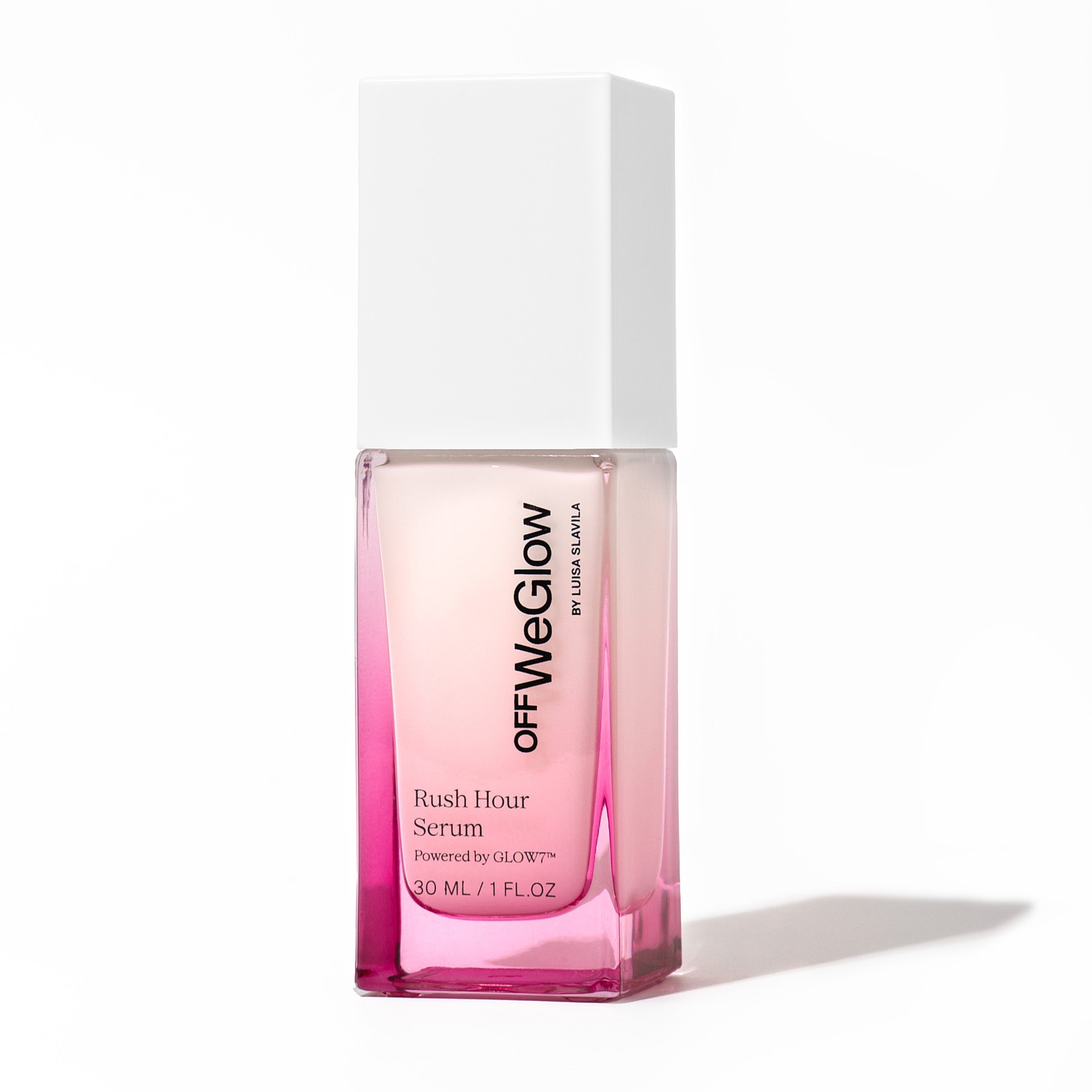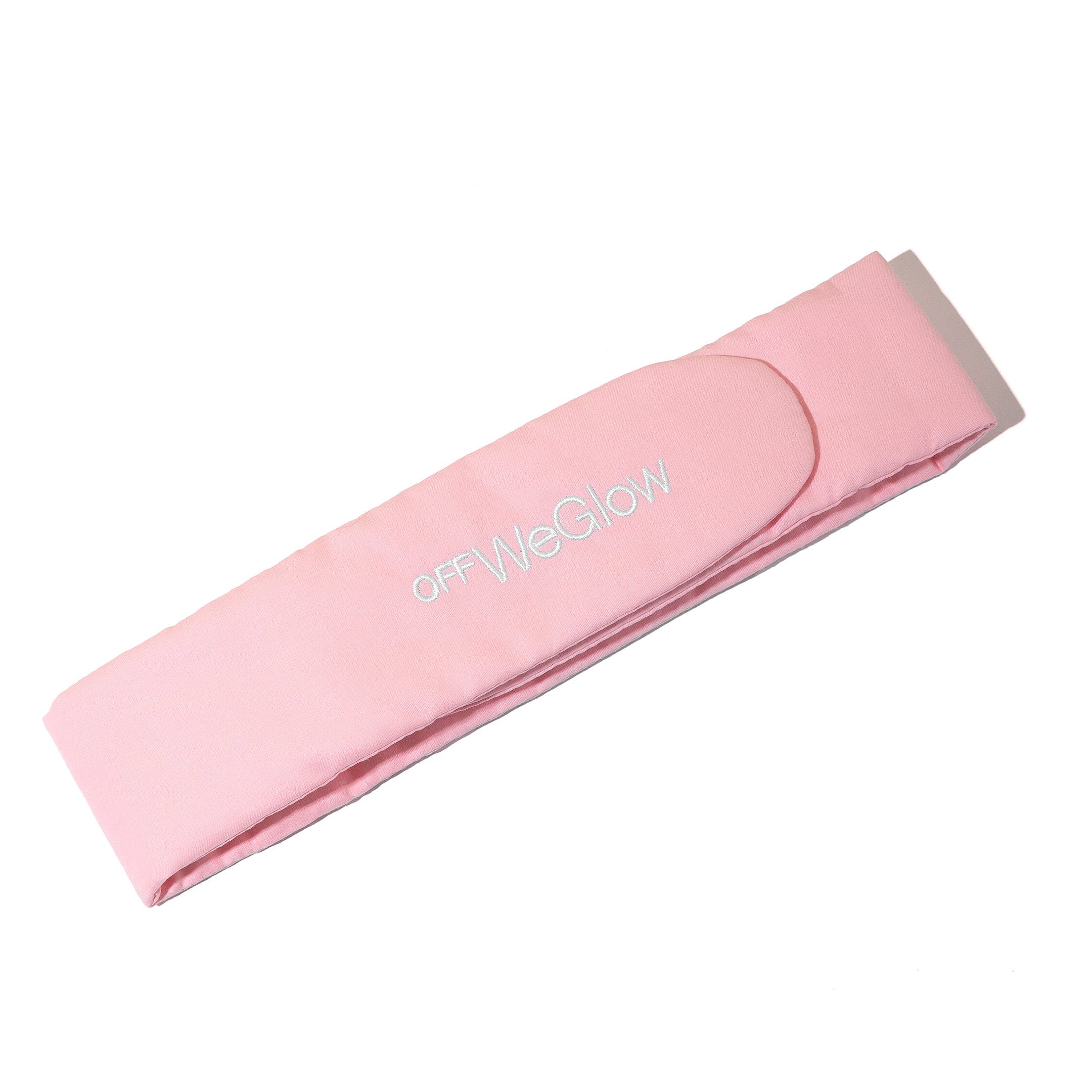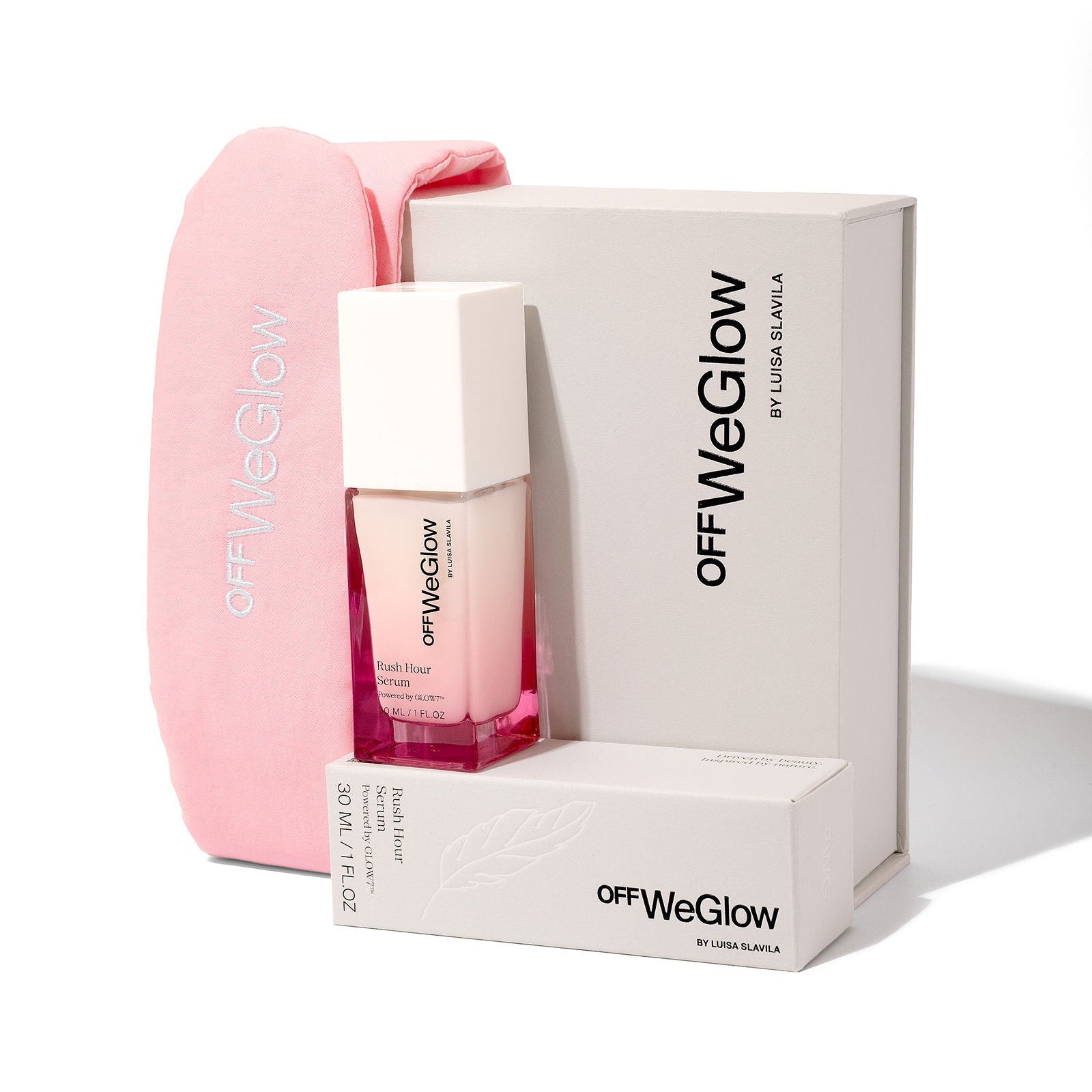
How To Get Smooth Skin: Expert Tips for Better Skin Texture
Written by Dr Shamsa Kanwal - Dermatologist
Updated on May 19th 2025
Wondering why your skin still feels bumpy, dull, or uneven no matter how many products you try? You’re not alone. The real secret to smooth, radiant skin isn’t genetics, it’s a strategic combination of effective skincare, the right routine, professional treatments, and intentional lifestyle choices.
Your skin’s texture is influenced by hydration, collag yen production, cell turnover, and environmental factors like pollution and UV exposure. The good news? You can significantly improve it with science-backed strategies.
In this article, we’ll explore how to get smooth skin explained by a skin expert, enhance skin texture, and maintain a healthy, youthful glow.
Key Highlights
-
Gentle cleansing with a pH-balanced, sulfate-free cleanser prevents moisture loss.
-
Exfoliate 1-2 times per week with gentle ingredients like jojoba beads, rice bran powder, or oatmeal.
-
Hydration is key, therefore use moisturizers with Squalane, Niacinamide, and Saccharide Isomerate.
-
Professional treatments like microneedling, chemical peels, and laser resurfacing help refine skin texture.
-
Avoid skincare mistakes like over-washing, skipping sunscreen, and over-exfoliating.
What Is Skin Texture?
Skin texture refers to how smooth or rough your skin feels to the touch. Ideally, healthy skin should be soft, supple, and even. However, factors like dehydration, clogged pores, and collagen loss can lead to roughness, making your skin feel bumpy, flaky, or dry.
What Are the Signs of Uneven Skin Texture
Before exploring the causes, it’s essential to determine whether your skin texture is genuinely uneven. While minor irregularities are normal, certain signs may indicate a rough or bumpy surface that requires attention. Here’s how to assess your skin texture effectively:
-
Touch Test: Run your fingers over your skin. Does it feel rough, dry, or bumpy in some areas?
-
Makeup Application: Does your foundation settle into fine lines or look patchy instead of blending smoothly?
-
Skin Radiance: Despite using skincare products, does your skin still appear dull or tired?
-
Pores and Scars: Are certain areas, like your nose, cheeks, or forehead, more textured due to enlarged pores or acne scars?
If you relate to any of these signs, you might need a targeted approach to smooth your skin.
How to Get Smooth Skin: Dermatologist-Approved Skincare
Achieving smooth skin starts with a well-structured skincare routine that addresses rough texture, dryness, and clogged pores. If you’ve been wondering how to get smooth skin on your face, the right products and techniques can help refine your skin, making it soft, even, and radiant.

Cleanse Your Face Gently
Cleansing is essential for removing dirt, oil, and impurities that clog pores and contribute to roughness. However, using the right cleanser is just as important as cleansing itself.
-
Use a gentle, pH-balanced cleanser that cleans effectively without stripping natural moisture.
-
Opt for a sulfate-free, hydrating cleanser with barrier-supporting ingredients like PEACHCALMTM and SYRICALMTM to prevent excessive dryness.
-
Avoid harsh, alcohol-based cleansers, as they can weaken the skin barrier and cause irritation.
Dermatologist Tip
Always wash your face with lukewarm water instead of hot water, as hot water strips natural oils, causing dryness and irritation.
Exfoliate Your Skin
Exfoliation is an important step in refining skin texture, as it removes dead skin cells that cause dullness and roughness. Studies suggest that gentle exfoliation can improve skin, reduce the appearance of pores, and promote smooth skin texture [4].
Instead of harsh scrubs or strong acids, opt for natural exfoliants that effectively remove dead skin cells without compromising the skin barrier. Here are a few gentle, skin-friendly ingredients to try:
Jojoba Beads
Jojoba beads are ultra-fine, biodegradable exfoliants that offer a gentle and effective way to exfoliate. They mimic the skin’s natural oils, ensuring smooth, non-abrasive removal of dead skin cells without damaging skin’s protective barrier.
Rice Bran Powder
Rich in antioxidants and vitamin B, rice bran powder provides a mild exfoliating effect while nourishing the skin. Its soft texture gently lifts away dead cells while enhancing skin’s natural radiance.
Oatmeal
Oatmeal is a soothing, anti-inflammatory exfoliant that not only clears away dead skin cells but also hydrates and calms sensitive or irritated skin.
Dermatologist Tip
Over-exfoliation can weaken the skin barrier, leading to dryness, redness, and irritation. Limit exfoliation to 2-3 times per week for normal to oily skin, while sensitive or dry skin should exfoliate once a week for best results.
Hydrate and Moisturize
Maintaining optimal hydration is crucial for preserving skin elasticity and preventing dryness [5]. A well-moisturized skin barrier locks in hydration, giving skin a smoother, softer texture. Look for moisturizers with PEACHCALMTM, SYRICALMTM, and Saccharide Isomerate, as these ingredients help restore and maintain smooth, healthy skin.
Protect From The Sun
Sunscreen is non-negotiable when it comes to achieving and maintaining smooth skin. UV exposure accelerates collagen breakdown, leading to fine lines, rough texture, and discoloration [6]. Use a broad-spectrum SPF 50+ sunscreen every day and reapply every two hours if you’re outdoors.
Dermatologist Tip
Avoid tanning beds, as they cause premature aging, long-term texture changes, and increase the risk of skin cancer [7].
What Are The Professional Treatments for Smoother Skin
If your skincare routine isn’t giving you the results you want and you’re still asking how to make skin look smooth, professional treatments can help refine texture, even out tone, and address stubborn concerns.
Gentle Chemical Peels
Chemical peels encourage cell turnover and remove dead skin, revealing fresher, smoother skin. Unlike harsh peels, gentle enzyme-based peels are an ideal option. These peels use fruit enzymes to dissolve dead cells without irritating the skin barrier.
Microneedling
Microneedling creates tiny, controlled micro-injuries in the skin, stimulating collagen production and skin renewal. It effectively improves mild acne scars, fine lines, rough patches, and overall skin texture.
For enhanced results and faster healing, dermatologists often combine microneedling with platelet-rich plasma (PRP) therapy, which uses the body’s growth factors to promote skin repair.
Microneedling is effective for individuals with mild to moderate acne scars, enlarged pores, and uneven skin texture. However, it is not recommended for those with active acne, rosacea-prone skin, or significant skin sensitivity, as the procedure may trigger inflammation and irritation.
Laser Resurfacing
Laser treatments improve skin texture by removing damaged layers and stimulating collagen production. Laser resurfacing therapy is particularly effective for smoothing scars, reducing fine lines, and improving overall skin quality. Here are the main types of lasers commonly used for resurfacing:
Ablative Lasers (e.g., CO2, Er:YAG)
Ablative lasers work by removing the outer layers of skin, providing improvements in texture and the appearance of scars. However, these treatments typically require a longer recovery time.
Non-Ablative Lasers (e.g., Nd:YAG, Fraxel)
Non-ablative lasers stimulate collagen production without removing skin layers. This results in gradual improvement with minimal downtime, making it ideal for patients seeking a less invasive treatment.
Fractional Lasers
Fractional lasers treat only a fraction of the skin at a time, promoting faster healing while still effectively improving skin texture and reducing scars.
A consultation with a dermatologist is essential to determine the most appropriate treatment based on your skin type and specific concerns.
What Causes Uneven Skin Texture?
Several factors contribute to rough or bumpy skin:
Dead Skin Cell Buildup
When dead skin cells accumulate, they make the skin look dull and uneven. Regular exfoliation with gentle ingredients like jojoba beads or enzyme extracts helps remove them and reveal fresher skin.
Dehydration and Moisture Loss
Lack of hydration can lead to dryness, tightness, and flaking, making the skin feel rough [1]. Proper moisturization is essential for a soft, smooth complexion.
Collagen Depletion
Collagen keeps skin firm and elastic. As we age, collagen production decreases, leading to sagging and fine lines that affect skin texture [2].
Clogged Pores and Acne Scars
Blocked pores due to excess oil, dirt, or bacteria can cause acne breakouts. If left untreated, acne can lead to scars and uneven skin texture [3].
Skin Conditions
Chronic conditions like eczema, rosacea, and keratosis pilaris can cause persistent roughness, redness, and tiny bumps. Treating the underlying issue is key to smoother skin.
By addressing these root causes, you can work towards a clearer, more refined skin texture.
What Are The Skincare Mistakes That Worsen Skin Texture
Even with the best skincare products, certain habits can make your skin texture worse. Here’s what to avoid and what to do instead for a smooth skin texture:
Common Skincare Mistakes and How to Fix Them
|
Common Skincare Mistake |
Why It’s Harmful |
Dermatologist-Recommended Fix |
|---|---|---|
|
Over-washing your face |
Strips natural oils, leading to dryness |
Cleanse twice a day with a gentle formula |
|
Using hot water |
Weakens the skin barrier, making it sensitive |
Wash with lukewarm water |
|
Over-exfoliating |
Weakens skin barrier, leading to irritation and uneven texture. |
Exfoliate 1-2 times per week (1 time only for sensitive skin) using gentle exfoliants like jojoba beads or enzyme extracts |
|
Skipping sunscreen |
Leads to premature aging and uneven skin tone |
Apply SPF 50+ daily |
|
Sleeping with makeup on |
Clogs pores, causing dullness and breakouts |
Always remove makeup before bed |
Clogged pores are one of the most overlooked causes of uneven skin texture. To make sure your skincare and makeup products aren’t secretly working against your glow, check your products' ingredients with our pore-clogging checker, a free tool designed to spot hidden comedogens before they affect your skin.
By avoiding these common skincare errors and following proven tips for smooth skin, you can help your complexion feel softer and more even over time.
What Ingredients Dermatologists Recommend For Smoother Skin
A well-structured skincare routine is essential for achieving smooth, healthy skin, but incorporating clinically proven ingredients can further enhance your results by hydrating, soothing, and fortifying the skin barrier. Here are some ingredients to consider for optimal skin health:
Niacinamide
Niacinamide, also known as vitamin B3, is a powerhouse ingredient that improves skin texture, reduces redness, and strengthens the skin barrier. It helps regulate sebum production, making it beneficial for both oily and dry skin types. Additionally, it supports collagen synthesis, which enhances skin elasticity and smoothness over time.
For a multitasking option that supports skin texture, clarity, and barrier health, Rush Hour Serum blends Niacinamide with brightening and soothing actives, including BV-OSC (a stable, oil-soluble form of Vitamin C), Saccharide Isomerate, and SEPIBLISS FEEL. This gentle serum for sensitive skin is perfect for calming and restoring without irritation. Its barrier-friendly formula is ideal for refining uneven texture while calming reactive, acne-prone skin.
Squalane
Squalane is a non-comedogenic, fast-absorbing moisturizer that mimics the skin’s natural lipids. Unlike heavier oils, Squalane provides deep hydration without clogging pores, making it suitable for all skin types, including acne-prone skin. It also prevents moisture loss, soothes dry, flaky patches, and enhances the skin’s softness and elasticity.
Saccharide Isomerate
Saccharide Isomerate, also known as a moisture magnet, binds to the skin like a natural water reservoir, delivering long-lasting hydration even to dry or dehydrated skin. It smooths rough texture, improves elasticity, and reinforces the skin barrier, making it an excellent choice for dull, uneven skin.
What Is The Role of Diet and Lifestyle in Skin Texture
Diet and lifestyle play a key role in achieving and maintaining smooth, healthy skin. Nutrient-rich foods, proper hydration, and consistent healthy habits help strengthen the skin barrier, support cell regeneration, and protect against premature aging.
In contrast, poor nutrition, dehydration, and stress can contribute to roughness, dullness, and increased sensitivity. Diets high in sugar and processed foods can also increase inflammation in the body, leading to more frequent breakouts and a rougher skin texture over time.
What Are The Key Nutrients for Smoother Skin
Here are some key nutrients that contribute to healthier, smoother skin and improved texture:
-
Healthy fats (avocados, olive oil, nuts) lock in moisture and keep the skin soft.
-
Vitamin C (citrus fruits, bell peppers) supports collagen production, improving skin firmness and texture.
-
Vitamin E (almonds, sunflower seeds) acts as an antioxidant, protecting against environmental damage.
-
Omega-3 fatty acids (salmon, flaxseeds, walnuts) help reduce inflammation and strengthen the skin barrier.
Dermatologist Tip
If your skin feels dry and rough despite regular moisturizing, increase your intake of electrolyte-rich foods like cucumbers, watermelon, and leafy greens. These help improve hydration.
When to See a Dermatologist for Uneven Skin Texture
While minor texture issues can improve with a consistent skincare routine, some cases require professional evaluation. Consider seeing a dermatologist if:
-
Your skin remains rough and bumpy despite regular exfoliation and hydration. This may indicate an underlying condition.
-
You have stubborn acne scars or enlarged pores that do not improve with over-the-counter products. Microneedling or laser therapy may be needed.
-
Your skin feels persistently irritated, inflamed, or overly sensitive. Conditions like rosacea, eczema, or keratosis pilaris can mimic rough texture and require medical management.
-
Over-the-counter products aren’t making a difference. A dermatologist can recommend prescription treatments or advanced procedures tailored to your skin needs.
What Are The Essentials for Smoother, Healthier Skin
Achieving a soft, even complexion requires a combination of skincare, lifestyle choices, and professional care. The following dermatologist-approved essentials can help refine skin texture, boost hydration, and protect against environmental damage.

FAQs on How To Get Smooth Skin
Here are some of the commonly asked questions about How To Get Smooth Skin:
-
Can stress affect my skin texture?
Yes. Chronic stress increases cortisol levels, which can break down collagen, increase oil production, and trigger inflammation. This may lead to rough texture, dullness, and breakouts. Managing stress through exercise, sleep, and relaxation techniques can significantly improve skin health.
-
How long does it take to see improvements in skin texture?
Results vary based on individual skin concerns and consistency. Typically:
-
4–8 weeks for noticeable changes with hydration, exfoliation, and diet improvements.
-
Up to 3 months for collagen production to visibly enhance skin smoothness.
-
Does drinking more water improve skin texture?
While hydration is essential, drinking water alone won’t directly smooth the skin. Skin hydration depends more on a strong moisture barrier and topical ingredients like Squalane and Saccharide Isomerate, which help retain water. PEACHCALMTM and SYRICALMTM in skincare products are also effective at improving skin texture.
-
Are facial massages beneficial for smoother skin?
Yes. Facial massages enhance circulation and stimulate collagen production, promoting elasticity, reducing puffiness, and improving skin texture. Using a gentle moisturizer during massage prevents friction and nourishes the skin.
-
Can using too many products make skin texture worse?
Yes. Overloading your skin with multiple products, especially those with active ingredients like exfoliants, retinoids, or acids, can disrupt the skin barrier, leading to irritation, dehydration, and uneven texture. This phenomenon, often referred to as “skin fatigue” or “product overload,” is a common reason why people don’t see the results they expect from their skincare routines.
Your skin thrives on consistency and balance, not excess. Using too many products or layering incompatible ingredients (like vitamin C with strong exfoliating acids) can lead to:
-
Barrier damage (which makes skin rough, red, or flaky)
-
Micro-inflammation, which accelerates texture irregularities
-
Increased sensitivity or breakouts, especially in acne-prone individuals
Dermatologist Tip: Stick to a simple yet effective routine: cleanse gently, exfoliate 1–2 times a week, moisturize deeply, and protect with sunscreen. Add active ingredients one at a time and give your skin at least 2–4 weeks to adjust before introducing a new product.
-
Why does my skin feel smooth in the morning but rough later in the day?
This is a common experience and is typically due to a combination of moisture loss, environmental exposure, and accumulated debris or oil throughout the day. Here's why it happens:
-
At night, your skin repairs itself and benefits from your nighttime products, such as moisturizers and barrier-repair ingredients. As a result, your skin feels plump and smooth when you wake up.
-
During the day, your skin is exposed to pollution, UV rays, fluctuating humidity, and internal stress (like cortisol), which can break down collagen and dehydrate the skin, resulting in a rougher, duller texture by evening.
If you're not using the right moisturizers or sunscreen, or if you're skipping reapplication, your skin can quickly lose hydration and become congested, especially in oil-prone areas like the T-zone.
Dermatologist Tip: Use a lightweight, hydrating moisturizer with ingredients like Squalane and Saccharide Isomerate in the morning. Always apply broad-spectrum SPF 50+ and consider reapplying midday, especially if you’re outdoors.
Did You Know?
Your skin renews itself approximately every 28 days but this cycle slows down as you age. In your 20s, dead skin cells shed efficiently, giving your skin a natural glow. However, by your 40s or 50s, cell turnover may take 45 days or more, leading to buildup, dullness, and uneven texture. That’s why gentle exfoliation becomes more important over time as it helps mimic your skin’s natural renewal process and keeps your complexion looking smooth and fresh.
Conclusion
If you want smooth, healthy skin, consistency is key. A gentle skincare routine, natural exfoliation, deep hydration, and daily sun protection form the foundation for better skin texture. Powerful ingredients like Niacinamide, Squalane, and Saccharide Isomerate further enhance hydration and skin barrier function, helping to refine roughness and prevent moisture loss.
However, patience is essential. Every skin type is different, and improvements take time. If persistent roughness, dryness, or uneven texture do not improve with skincare, a dermatologist can create a customized plan to address your unique skin needs.
References
https://www.firstderm.com/dry-patches-on-your-face-pictures-causes-treatments/
https://www.oaepublish.com/articles/2347-9264.2020.153?ref=blog.vitable.com.au
https://Article_Textresponse-content-disposition=inline%3B+filename%3DA_REVIEW_ON_ACNE.pdf
https://www.tandfonline.com/doi/abs/10.1080/15569527.2022.2050748

 Hydration
Hydration
 Soothing
Soothing
 Radiance
Radiance
 Clarity
Clarity












